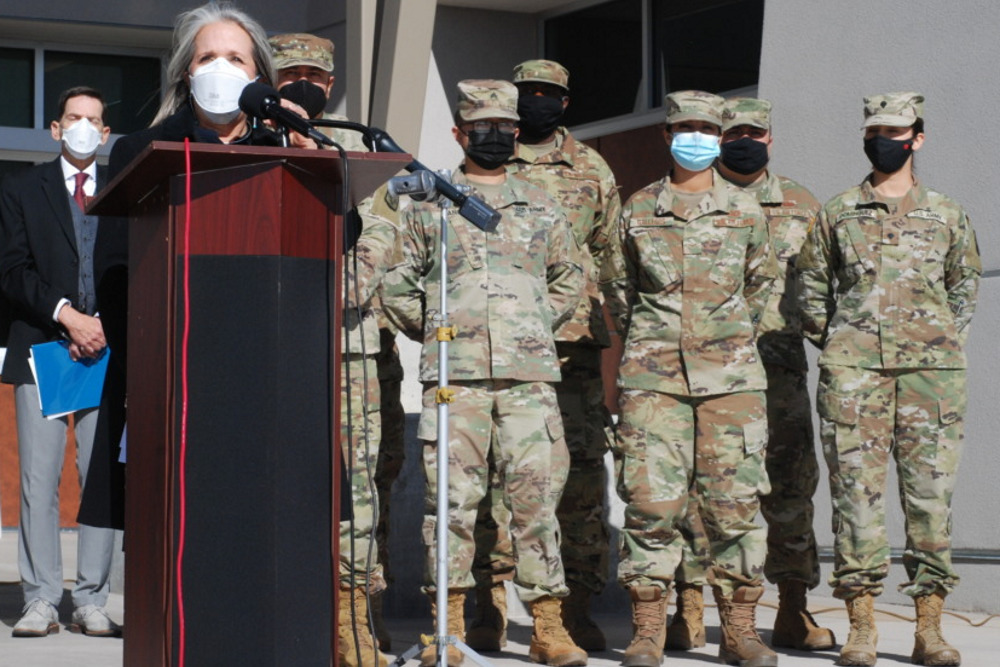TULSA — At least three states have called on public employees or National Guard troops to fill in as substitute teachers, bus drivers and other school and childcare workers in response to severe staffing shortages resulting from the COVID-19 pandemic.
The scramble to find enough replacement workers to keep schools and childcare centers from shutting down underscores the country’s haphazard approach to the health crisis, now in its second year. Some teacher advocates also say it devalues their profession and ignores the longstanding problems causing high turnover in education since before the pandemic.
“Long term, we have to make teaching more desirable,” said Katherine Bishop, president of the Oklahoma Education Association.
Oklahoma is among the states that have called in reinforcements for schools and daycares from the public sector. Gov. Kevin Stitt, a Republican, issued an executive order this week allowing state employees to work as substitute teachers while keeping their pay and benefits at their regular jobs. The order did not address background checks or training.
“I’ve said from the beginning that our students deserve an in-person education and our schools need to stay open,” Stitt said in a statement. “The state has a responsibility to do what we can to help make that happen.”
In New Mexico, Democratic Gov. Michelle Lujan Grisham announced her government was streamlining its licensure process for substitute teachers and daycare workers, while maintaining the same training and background check requirements. State workers there will now be allowed to use administrative leave to work in schools and childcare centers.
“Our schools are a critical source of stability for our kids — we know they learn better in the classroom and thrive among their peers,” Lujan Grisham said in a statement. “Our kids, our teachers and our parents deserve as much stability as we can provide during this time of uncertainty.”
North Carolina Gov. Roy Cooper, a Democrat, announced a policy allowing state employees to use volunteer days with supervisor approval to work in public schools as substitute teachers, bus drivers and cafeteria staff.
Other states are seeking to make recruitment easier by changing or easing licensure requirements. In Kansas, for example, anyone 18 and older who has a high school diploma and passes a background check can work as a substitute teacher now.
The programs have already attracted interest. As of Thursday afternoon, a representative with Oklahoma’s state Office of Management and Enterprise Services said 171 state employees had registered to substitute teach.
Jami Cole, a fifth-grade teacher in Duncan, said the order may help alleviate shortages in Oklahoma City, but she doesn’t think it will help rural school districts like hers.
“Nobody’s going to drive an hour and a half down here to substitute my class,” she said. “It might help the metro area, but it’s not going to help anybody else.”
She said the pandemic exacerbated existing teacher and substitute teacher shortages.
“Our substitutes, they at least need to know what’s going on during the day,” she said. “If you have the majority of your staff out, it becomes a safety issue.”






























